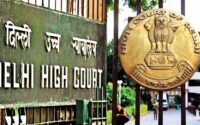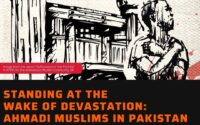On Policing In Pandemic, Mindless Arrests & Prison Overcrowding : Criminal Justice & Police Accountability Project
This article has been written by S. Karpagam
Introduction:
Prison overcrowding has become a constant problem in this country, high levels of human settlements can only mean bad news in the midst of the epidemic. The Supreme Court has been intervening from time to time to resolve this issue, but its latest order to regulate the temporary release of qualified prisoners is gaining traction due to the second uncontrolled increase in this epidemic. The prison is said to be famous for holding a mirror in public. The conditions inside the prisons, to extend this analogy, reflect the quality of any democracy. With that stick, India needs a soul search. Not only has our deteriorating justice system not ensured immediate prosecution but alcohol and testing (or impartiality) investigations and prosecutions have ensured that terriers suffer in prisons for decades. Courts rarely intervene to ensure that a thorough investigation is carried out with strict prosecution, or the conclusion of a probationary period.
The government’s most visible plan to deal with the Covid-19 pandemic was carried out with extensive instructions on legal and illegal activities. These closure rules and regulations were vague, progressive and unequal. Already powerful police forces, registers of abusers, strong colonial legacy and free will make discriminated communities an unequal guilt, an epidemic from its earliest days became a tool to continue harassing these neglected groups. We have seen tangible evidence in the media of police excesses during beatings, hard work or punishment. The pictures themselves showed who these people were at the end of the violence; they were street vendors, small vegetable sellers, milk or meat sellers and other neglected groups.
Consequences and challenges of FIR:
In a statement by live law, 34000 arrest records and 500 FIRS and that one in five FIRs were against street vendors or small shop owners. The FIR value against pedestrians increased from 50% for the first and second locks to 89% during the third lock. Most of these FIRs were installed due to police patrols. As a result of investigations with pedestrians, most FIRs were cases of movement of essential services such as gas or medicine. But more than 90% FIR in virtual-copy-mode mode only attaches to the fact that a person has been found violating the closure and their reasons are considered unsatisfactory, ‘unnecessary’, ‘inappropriate’, ‘vague’ or ‘invalid’. It was clear that there was no check on the police’s actions in enforcing the ban. The FIR should only state the facts and circumstances of a particular situation, not a police decision on a particular matter. Crime stories are therefore created by the police using their understanding as the last word of the law, and the same was used to unequally identify groups of the poor or disadvantaged.
In addition to shopkeepers, street vendors too were slapped with FIRS, many of which provided essential services and goods without the necessary closure. With regard to the people selling meat and dairy products, it was found that most FIRs were opposed to the people of the Muslim community. Some of them have been charged with minor offenses such as arriving late to close a shop despite having permission from the District Magistrate, etc. In total, 6000 people were arrested for criminal offenses alone, while more than 4000 others were arrested for minor offenses such as drinking alcohol, breaking the law or gambling temporarily for between 100 Rupees to 500 rupees. 10.85% of the people arrested under property laws were women. Most FIRs in lockdown to MP were standard as a template with few changes; same complaints, sometimes with the same informant. For example, there was one informant Patwari who found more than 150 FIRS, one and the same, registered at one police station.
There are many face-to-face challenges in the work of litigation, as a defence attorney it is difficult to get a client’s FIR registered and not only uploaded online but it is difficult to go to the police station and get an FIR, how can we possibly argue without an FIR! The widespread identification of these communities has led to the permanent supply of clients to lawyers. There are networks of attorneys; and a false guarantee of bail. This is also a shortage of quality lawyers because in many cases lawyers themselves are convinced of the crimes of these communities. Although it has long been accepted for bail by a High Court, it is granted only on bail. Personal obligations are probably confusing to many in the system and as a result are rarely used. The NCRB, or CCP does not store data in a separate format. Relying heavily on the three broad levels of SC management. Lack of relevant data leaves many communities unheard and hinders the use of data for litigation purposes. Service attorneys are paid a small amount, are given very little training or no training at all which harms their performance. The case cannot be continued until the defendant has attorneys, but this right is mechanically treated with little or no consideration at all by the right of assistance by the practicing attorney.
Criminal Justice and Police Accountability Project:
The Criminal Justice and Police Accountability Project is an intervention that focuses on criminalizing certain communities through the police and the criminal justice system and border controls. The project is a low-level intervention based in Bhopal, operating locally, and in specific communities in the Madhya Pradesh region. These communities include those that were formerly criminalized in colonial law, now classified as Denotified Tribal (DNT) communities and other communities that are equally persecuted and discriminated against by the justice system. The purpose of the intervention is to make the justice system respond to and suppress the transformation of its elements, including legislative, police and administrative systems, and to challenge unfair laws that persecute and discriminate against DNT members and other target communities. It seeks to do this by ensuring quality legal representation for people from these communities at various forums through effective legal strategies, case studies, and access to higher courts. Case work will be done in conjunction with research aimed at understanding how social governance in these communities is maintained by administrative and judicial practices, and then challenging itself and the courts.
While working they encounter criminal cases from Pardi, Gond and other similar target communities. Provisions of criminal law related to theft, burglary, docket, possession of weapons and alcohol, etc. It is often used to persecute them. Currently, there is a wide gap between the level and quality of legal representation provided to communities. The task of the defendant will be to focus on two main issues namely pre-trial and court proceedings. Pre-trial work will involve the provision of legal representation from the time of detention. Pre-trial work will include challenging false detention, illegal detention in police cells, provision for traffickers, etc. It will be done in accordance with this research work. Incorporating this study at the start of the trial and trial phase to emphasize how common the system is to identify DNT communities in a cohesive manner.
SC on prison overcrowding:
The Supreme Court granted a detailed order for the strong currents in the second strong Covid-19 wave, saying police should not arrest suspects unless necessary in cases sentenced to less than seven years in prison, and ordered authorities to ensure hospitals were provided with appropriate treatment facilities. Strong committees made up of national governments and Union territories have been asked to identify and release sensitive categories of prisoners as soon as possible. The Supreme Court also ordered that prisoners granted amnesty last year be re-granted a 90-day to deal with the epidemic. The court ruled those measures should be taken to control the spread of Covid-19 by conducting regular examinations of prisoners and prison staff and immediate medical attention should be obtained from them. “It is necessary to maintain daily hygiene and sanitation that need to be improved. Appropriate measures will be taken to prevent the transmission of the deadly virus among prison inmates,” the order said. The court noted that some inmates may refuse to be released because of their social background and fear of infection. “In rare cases like these, the authorities are instructed to consider the problems facing prisoners,” The May 12 ruling of the SC urges the courts to actively use the option of house arrest in cases where “age, health conditions and opposition of the defendant” are the norm. The court has expressed grave concern over the overcrowding of prisons on average at least 118 percent above the limit and the rising costs of operations.
Conclusion:
Home detention as a punishment is viewed differently depending on the social and political environment. Even prison sentences have been used in various ways by the colonial powers and elected governments of India depending on the social class and the political organizations of the prisoner. Even if they are confined to their home, there will always be some who believe that their imprisonment is very comfortable and that others find it very humiliating. Given the context of the extreme condition of the Indian prison and the lack of political will in proper monitoring, the option of house arrest should be considered a good opportunity. Familiarity with the subcontractor or his or her place of residence and the ability to get immediate medical attention should wrap the courts in the use and use of this as an option.
References:
[Surbhi karwa & Rajesh Ranjan], [On Policing In Pandemic, Mindless Arrests & Prison Overcrowding : Interview Criminal Justice & Police Accountability Project], [Live Law], [1st page], 2021
[Teesta Setalvad], [The pandemic has put the spotlight on inhumane conditions in Indian prisons], [Indian Express], [2021]
[The Hindu] [Protecting prisoners: On overcrowding of prisons], [The Hindu], [2021]
This article is edited by Anamika Singh.


